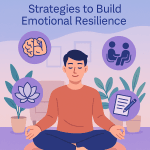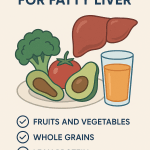This article is for informational purposes only and should not be considered medical advice. Always consult a healthcare professional for health-related concerns.
The Crucial Role of Sleep in Our Lives
Sleep is not just a time for our bodies to rest; it is a vital component of our overall health. Did you know that adults typically need between 7 to 9 hours of sleep each night? Yet, many of us struggle to achieve this. According to the Centers for Disease Control and Prevention (CDC), about one in three adults do not get enough sleep. But why is this important? The impact of sleep extends beyond mere fatigue; it influences our mental clarity, emotional stability, and even our physical health.
Understanding Sleep and Its Phases
Sleep consists of multiple phases, including REM (Rapid Eye Movement) and non-REM sleep. Each phase plays a distinct role in our health. For example, REM sleep is crucial for emotional regulation and memory consolidation, while non-REM sleep is essential for physical restoration. When we skimp on sleep, we disrupt these processes, leading to a cascade of health issues. In fact, studies suggest that insufficient REM sleep can impair cognitive function and emotional resilience, making it harder to cope with daily stressors.
The Connection Between Sleep and Mental Health
Research has shown a strong link between sleep and mental health. Poor sleep can exacerbate conditions such as anxiety and depression. A study published in PubMed found that individuals with insomnia are significantly more likely to develop anxiety disorders. This creates a vicious cycle: anxiety can lead to sleep disturbances, which in turn worsen anxiety. It’s a feedback loop that can be challenging to break.
Pathophysiology of Sleep Disorders
Understanding the pathophysiology behind sleep disorders is essential. For instance, insomnia is often linked to dysregulation of neurotransmitters such as serotonin and dopamine, which play a crucial role in mood regulation. Similarly, sleep apnea, characterized by repeated interruptions in breathing during sleep, can lead to chronic daytime fatigue and impaired cognitive function due to inadequate oxygen supply to the brain. This can further exacerbate mental health issues, creating a complex interplay between sleep and psychological well-being.
Sleep Disorders and Their Impact
Sleep disorders, such as insomnia and sleep apnea, can further complicate mental health issues. Insomnia, characterized by difficulty falling or staying asleep, affects approximately 30% of adults. Sleep apnea, a condition where breathing repeatedly stops and starts during sleep, can lead to daytime fatigue and cognitive impairment. Both disorders require attention and management to improve overall health. For example, untreated sleep apnea has been linked to increased risks of depression and anxiety, highlighting the importance of proper diagnosis and treatment.
Sleep and Chronic Disease Management
Chronic diseases, including diabetes, heart disease, and obesity, are also influenced by sleep quality. According to the World Health Organization (WHO), sleep deprivation can lead to insulin resistance, increasing the risk of type 2 diabetes. Furthermore, inadequate sleep is linked to higher blood pressure and inflammation, both of which are risk factors for heart disease. The mechanisms behind this include hormonal imbalances and increased stress levels that arise from poor sleep.
Managing Chronic Conditions Through Better Sleep
For individuals managing chronic diseases, improving sleep can be a game changer. For instance, a study in the journal Diabetes Care found that participants who improved their sleep patterns showed better blood sugar control. This highlights the importance of integrating sleep management into chronic disease treatment plans. Additionally, better sleep can enhance the effectiveness of medications and other treatments, making it a crucial aspect of holistic health management.
Practical Tips for Improving Sleep Quality
Improving sleep quality is achievable with some practical strategies. Here are a few tips to consider:
- Establish a Sleep Schedule: Going to bed and waking up at the same time every day can regulate your body’s internal clock. This consistency helps reinforce your body’s natural sleep-wake cycle.
- Create a Relaxing Bedtime Routine: Engage in calming activities before bed, such as reading or meditating, to signal to your body that it’s time to wind down. Consider incorporating gentle stretches or deep-breathing exercises to further relax.
- Limit Screen Time: The blue light emitted by screens can interfere with melatonin production. Try to avoid screens at least an hour before bedtime. Instead, opt for activities that promote relaxation, like listening to soothing music.
- Optimize Your Sleep Environment: Ensure your bedroom is dark, quiet, and cool. Consider using blackout curtains and white noise machines if necessary. A comfortable mattress and pillows can also make a significant difference in sleep quality.
- Be Mindful of Food and Drink: Avoid large meals, caffeine, and alcohol close to bedtime, as they can disrupt sleep. Instead, consider a light snack that includes sleep-promoting nutrients, such as bananas or almonds.
- Stay Active: Regular physical activity can help you fall asleep faster and enjoy deeper sleep. However, try to avoid vigorous exercise close to bedtime, as it may have the opposite effect.
Case Vignette: A Journey to Better Sleep
Consider the case of Sarah, a 35-year-old teacher who struggled with insomnia for years. Her busy schedule left her feeling anxious and overwhelmed, leading to sleepless nights. After recognizing the toll it was taking on her mental health, Sarah decided to take action. She began by establishing a consistent sleep schedule and incorporated a relaxing bedtime routine that included reading and gentle yoga. Within weeks, Sarah noticed significant improvements in her sleep quality and overall mood. By prioritizing her sleep, she found herself more focused and less anxious during the day.
The Role of Healthcare Providers
It’s essential to involve healthcare providers in managing sleep issues, especially for those with mental health concerns or chronic diseases. They can offer guidance, recommend sleep studies, or prescribe treatments such as cognitive behavioral therapy for insomnia (CBT-I), which has proven effective for many. Additionally, healthcare providers can help identify any underlying conditions that may be contributing to sleep disturbances, ensuring a comprehensive approach to treatment.
When to Seek Help
If you find that sleep disturbances persist despite implementing healthy sleep practices, it may be time to seek professional help. Symptoms such as excessive daytime sleepiness, loud snoring, or difficulty concentrating can indicate underlying sleep disorders that require attention. Remember, early intervention can lead to better outcomes.
Myth-Busters: Common Misconceptions About Sleep
There are many myths surrounding sleep that can hinder our understanding and management of it. Here are a few common misconceptions:
- Myth: I can catch up on sleep during the weekends.
Fact: While sleeping in may help alleviate some sleep debt, it doesn’t fully compensate for the effects of chronic sleep deprivation. Consistent sleep patterns are key. - Myth: Older adults need less sleep.
Fact: While sleep patterns may change with age, older adults still require 7 to 8 hours of sleep for optimal health. - Myth: Napping is a waste of time.
Fact: Short naps can be beneficial, improving alertness and performance if timed correctly. Just be cautious not to nap too late in the day, as it may interfere with nighttime sleep.
Conclusion: Prioritizing Sleep for Better Health
In conclusion, the impact of sleep on mental health and chronic disease management cannot be overstated. By prioritizing sleep, we can improve our mental well-being, enhance our ability to manage chronic conditions, and ultimately lead healthier lives. So, ask yourself: what steps can you take today to improve your sleep quality? Remember, a good night’s sleep is not just a luxury; it’s a necessity for your overall health. Embrace the journey towards better sleep, and you may find yourself reaping the benefits in all areas of your life.
Key Takeaways
- Sleep is essential for mental health and chronic disease management.
- Poor sleep can exacerbate anxiety and depression.
- Chronic diseases can be managed more effectively with better sleep.
- Establishing a sleep schedule can improve sleep quality.
- Consulting healthcare providers is crucial for persistent sleep issues.
References
- Centers for Disease Control and Prevention. (2021). Sleep and Sleep Disorders.
- World Health Organization. (2020). Sleep and health.
- PubMed. (2017). Insomnia and anxiety disorders: A review.
- Diabetes Care. (2018). Sleep and glycemic control in diabetes.
- National Heart, Lung, and Blood Institute. (2021). Sleep apnea and cardiovascular disease.








Post a comment